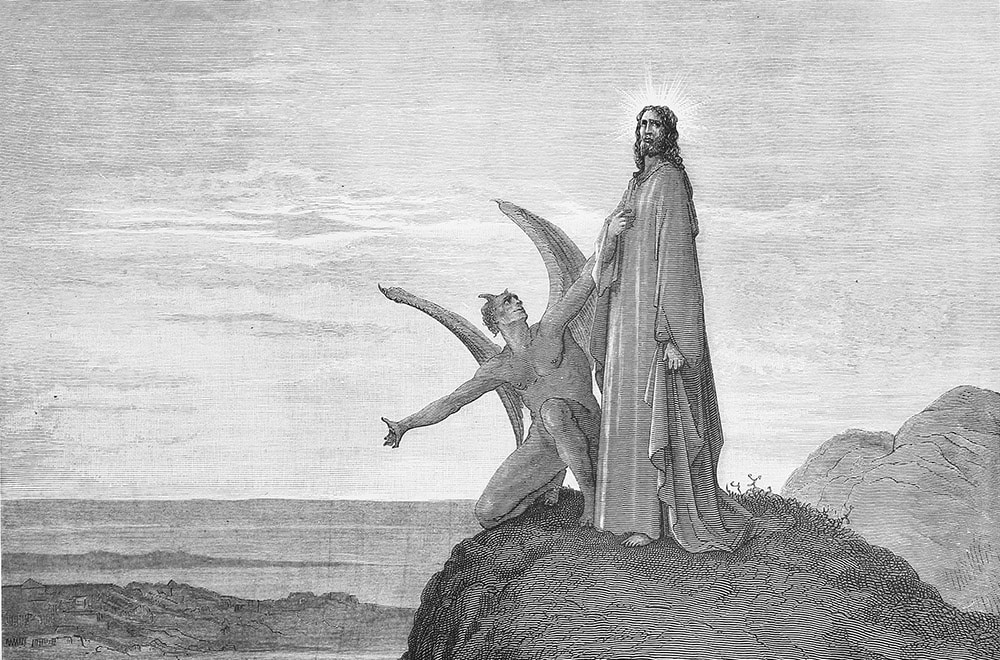
How do we train ourselves to be free?
Here is a simple example. Perhaps we give up chocolate for Lent. Why, when we really love to eat chocolate? Maybe we are finding ways to have and enjoy chocolate every day. It may seem exaggerated to say at first blush, but this chocolate has come to have some power over us. Chocolate has a secure place in our hearts and our daily life.
We want to be free of this need for chocolate. We want to be in command of our desires. We want to train ourselves to turn our hearts entirely to God.
| March 6 – First Sunday of Lent |
|---|
|
Dt 26:4-10 |
We see several examples of this in the readings for this first Sunday of Lent.
In the first reading, we see the gratitude of Israel in tithing the first fruits of the land to God. This tithe is an askesis of gratitude. It is a grateful response to God’s generosity, which includes the gift of their freedom. To say “thank you” to God requires askesis. It requires training to freely recognize and respond to the generosity of another, which turns our hearts toward God.
In his letter to the Romans, Paul invites us to entrust ourselves in faith to Christ. This is beyond the askesis of a tithe. This is not our “first fruits,” but our very selves. Certainly, this requires training! And not just a few weeks of training, but each day of our lives. Each moment of askesis will strengthen our freedom for love.
And in Luke’s Gospel, Christ gives us an example of exercising our freedom amidst temptation such that we might worship and serve the Lord alone. But this example is interesting for another reason: It reveals our true captivity from whence training helps to free us.
Christ has fasted 40 days. He is hungry. The devil tempts him to turn bread into stone. If you were very hungry, you would not want to do this! You would want to eat the bread, wouldn’t you? So what kind of temptation is this?
It is the temptation to be proud of your own powers; to be independent and self-sufficient. Our hearts are tempted to believe that we are the ones to whom “thank you” is owed. Not God. And so we learn something new about our askesis: It strengthens us to be humble. Exercising our freedom for love requires humility. We must rely on the power of God’s love instead of ourselves.
What if we took the psalm for this Sunday up as part of our Lenten askesis? Psalm 91 is also the beautiful psalm for night prayer on Sundays, and thus the Church already prescribes this psalm for weekly recitation, for the training of our hearts toward freedom. Praying its words regularly, we just might begin to entrust ourselves to God:
“You who dwell in the shelter of the Most High, / who abide in the shadow of the Almighty, / say to the Lord, ‘My refuge and fortress, / my God in whom I trust.'”
And we might be strengthened then to cling to God and to rely on the power of God’s love:
“Because he clings to me, I will deliver him; / I will set him on high because he acknowledges my name.”
And we might even be made free:
“He shall call upon me, and I will answer him; / I will be with him in distress; / I will deliver him and glorify him.”
Catherine Cavadini, Ph.D., is the assistant chair of the Department of Theology and director of the master’s in theology program at the University of Notre Dame.





